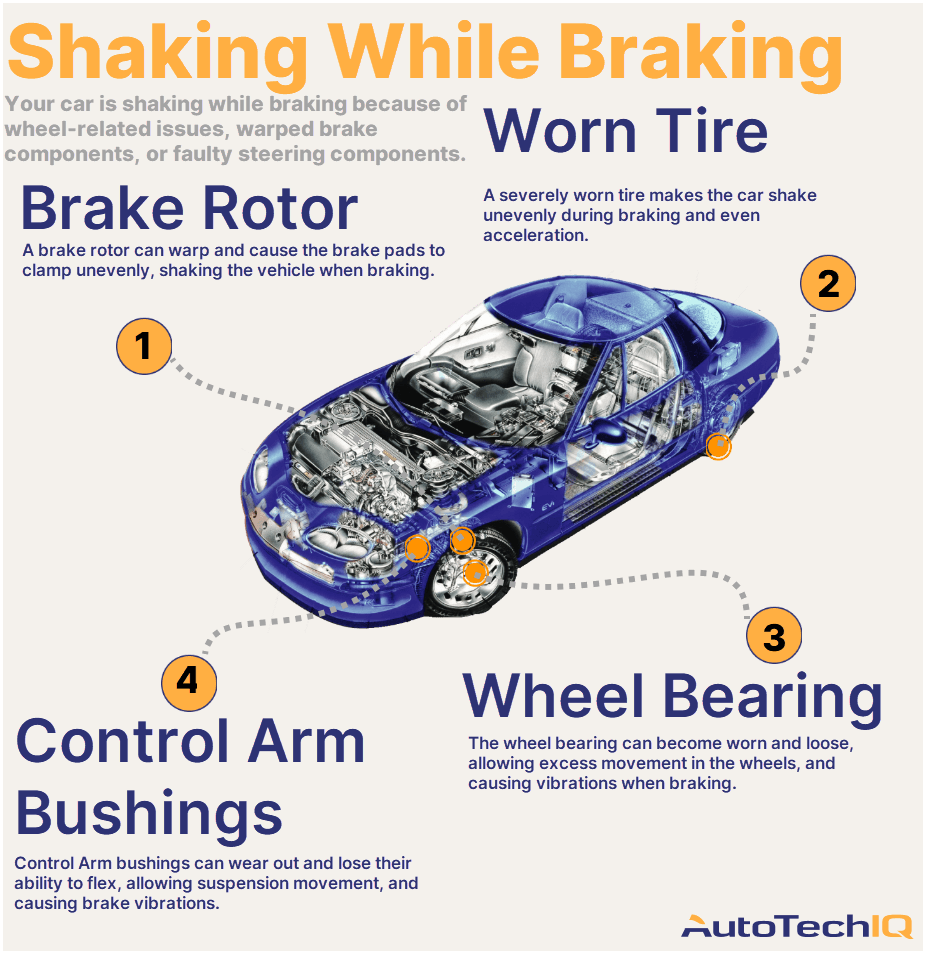Why My Car Engine Shakes
1. Spark Plug Issues
Spark plugs are responsible for igniting the air-fuel mixture in your engine’s cylinders. If a spark plug is faulty or worn, it can cause the engine to misfire, which can lead to shaking. Misfiring occurs when the spark plug fails to ignite the air-fuel mixture, resulting in a loss of power and a rough running engine. In severe cases, misfiring can also cause the engine to stall.
2. Fuel Injector Problems
Fuel injectors are responsible for delivering fuel to your engine’s cylinders. If a fuel injector is clogged or faulty, it can cause the engine to run lean or rich, which can lead to shaking. A lean air-fuel mixture occurs when there is too much air and not enough fuel in the mixture, while a rich air-fuel mixture occurs when there is too much fuel and not enough air. Both conditions can cause the engine to run rough and shake.
3. Vacuum Leaks
Vacuum leaks can cause the engine to run lean, which can lead to shaking. Vacuum leaks occur when air is drawn into the engine through a hole or crack in the intake manifold or other vacuum lines. This can cause the engine to run lean, as the extra air dilutes the air-fuel mixture. A lean air-fuel mixture can cause the engine to misfire, which can lead to shaking.
4. Engine Mounts
Engine mounts are responsible for holding the engine in place. If an engine mount is broken or worn, it can cause the engine to shake. This is because the engine is no longer securely held in place, and the vibrations from the engine are transmitted to the rest of the vehicle.
5. Driveshaft Problems
Driveshaft problems can also cause the car engine to shake. The driveshaft is responsible for transmitting power from the transmission to the wheels. If the driveshaft is bent or unbalanced, it can cause vibrations that are transmitted to the rest of the vehicle. This can cause the car to shake, especially at higher speeds.
6. Transmission Problems
Transmission problems can also cause the car engine to shake. The transmission is responsible for transferring power from the engine to the wheels. If the transmission is faulty or damaged, it can cause the car to shake, especially when shifting gears or accelerating.
How to Fix a Shaking Car Engine
The best way to fix a shaking car engine is to have it diagnosed by a qualified mechanic. The mechanic will be able to determine the cause of the shaking and recommend the appropriate repairs. In some cases, the repairs may be simple and inexpensive, while in other cases, the repairs may be more complex and expensive.
Conclusion
If your car engine is shaking, it is important to have it checked out by a qualified mechanic as soon as possible. Ignoring the problem can lead to more serious damage and expensive repairs.





